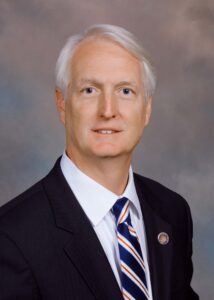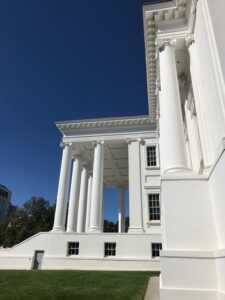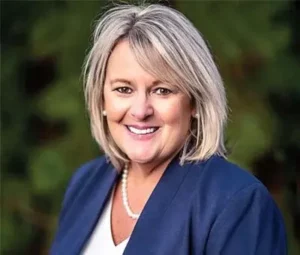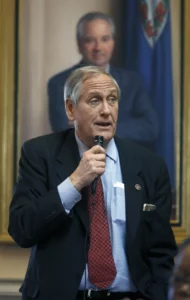
Sen. Mark Peake (R-Lynchburg)
by Dick Hall-Sizemore
One of the good bills introduced in the General Assembly this year would bring a measure of competition in public schools. Put in by Sen. Mark Peake (R-Lynchburg), SB 552 would require school districts to allow students to attend any school in the district. Currently, districts are allowed to adopt such open enrollment policies, but are not required to do so. Typically, students must attend the school within the attendance zone where they live.
The legislation would enable an elementary school student in the eastern part of Henrico County, for example, where the reading scores in schools are very low, to attend an elementary school in the western part of the county, which has schools with high reading scores. If the requests for “nonresident” students to attend a particular school exceed that school’s enrollment capacity, a lottery would be used to decide which nonresident students got to attend that school.
The legislation directs the State Board of Education to develop model policies and guidelines to implement the legislation. Under the provisions of the legislation as introduced, the Board would have to act quickly. The bill requires the policies and guidelines to be adopted by August 1, 2024, to enable the open enrollment process to be in effect for the next school year, 2024-2025. Continue reading



 by Kerry Dougherty
by Kerry Dougherty  from the Liberty Unyielding blog
from the Liberty Unyielding blog




 by Dick Hall-Sizemore
by Dick Hall-Sizemore
 by Dick Hall-Sizemore
by Dick Hall-Sizemore


